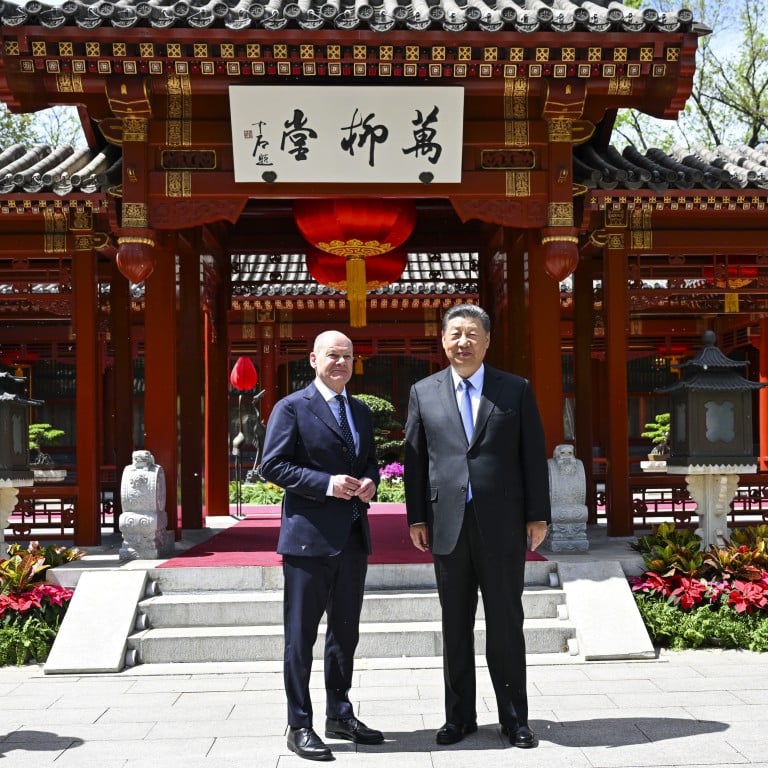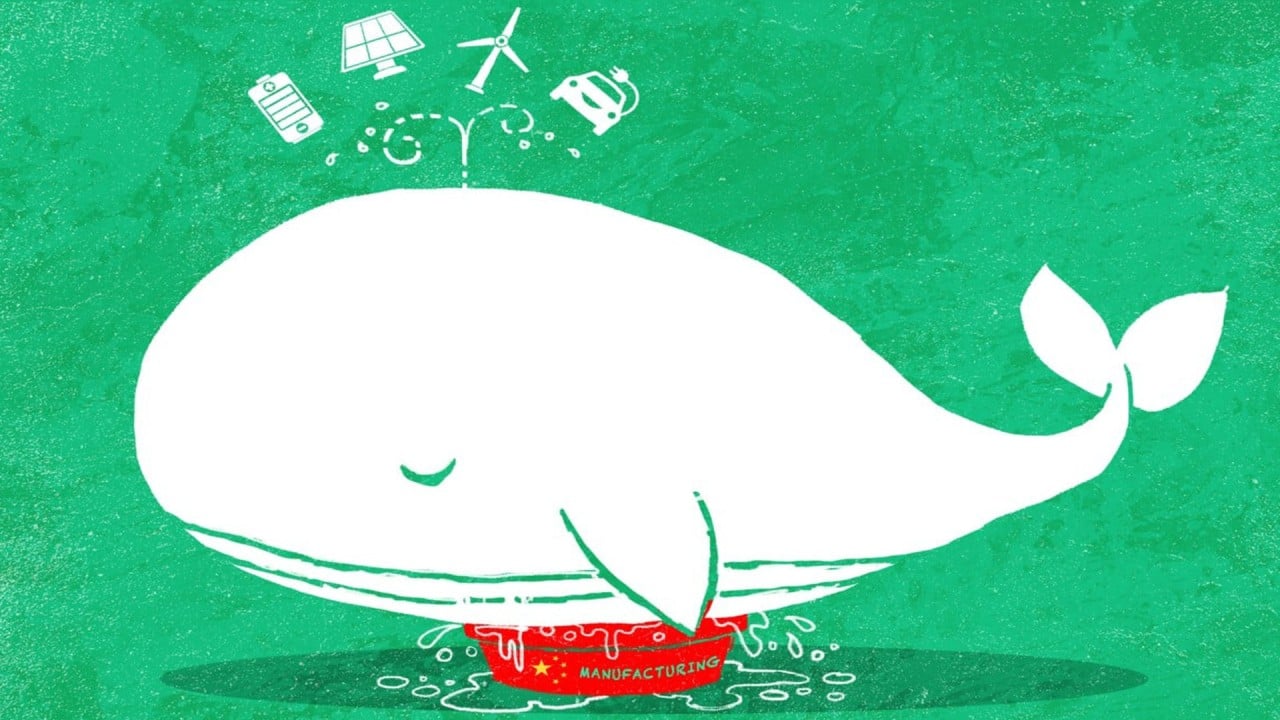
Germany carving its own path on China
- Pragmatism is at play in each relationship between the West and China, not least with Berlin and Beijing. For German Chancellor Olaf Scholz, that means continued engagement and commerce
German Chancellor Olaf Scholz was the latest Western leader to visit China this month, on the heels of French President Emmanuel Macron and European Commission President Ursula von der Leyen.
Like Macron and von der Leyen, Scholz spoke of security in Europe and urged China to press Russia to end the war and make peace with Ukraine.
He echoed US Treasury Secretary Janet Yellen’s concerns about “overcapacity”. There the comparisons dwindle.
Scholz, with ministers and captains of industry in tow, made it clear Germany was following its new strategy of “de-risking” but not decoupling.
He emphasised there was room to improve upon the US$207 billion in annual trade between the two countries. Chinese vehicle sales were welcome, he said, but competition between carmakers must be “open and fair” and dumping must be avoided.
President Xi Jinping sought to reassure Scholz that their two countries had “no fundamental conflicts of interest” and could work out their differences.
Xi also warned against protectionism, and noted the two countries’ industrial and supply chains were deeply embedded, their markets highly interdependent. Premier Li Qiang pledged to ease restrictions for foreign businesses.
Germany recognises its economy is tied to China, and has been carving its own path when it comes to relations with its largest trading partner.
China is home to some 5,000 German companies, and support for German business is a priority. Scholz’s delegation included environment, agriculture and transport ministers, but also executives of Siemens, Bayer, BMW, Mercedes-Benz, and Merck Group.
Why Germany has little choice but to continue to cosy up to China
Scholz visited German businesses Bosch in Chongqing and Covestro in Shanghai. Many still grumble about the lack of a level playing field, but they remain committed to China.
Siemens CEO Roland Busch said: “We believe in the Chinese market, and we’ll be doubling down on our investment.”
The ambivalent nature of relations between China and the West appears to be the new normal. Yet pragmatism is at play in each relationship, not least with Germany and China.
Scholz must balance the interests of Europe and the West against his own domestic concerns, and that means continued engagement and commerce with China.


